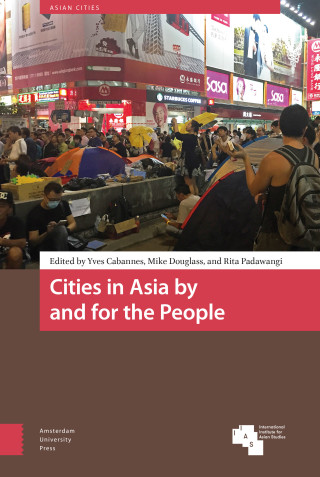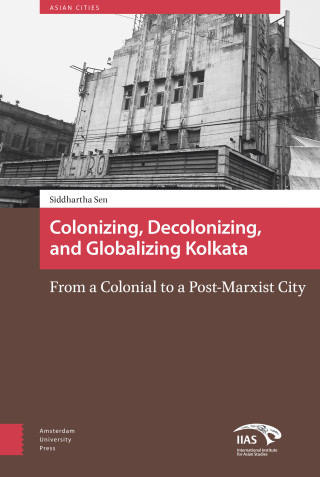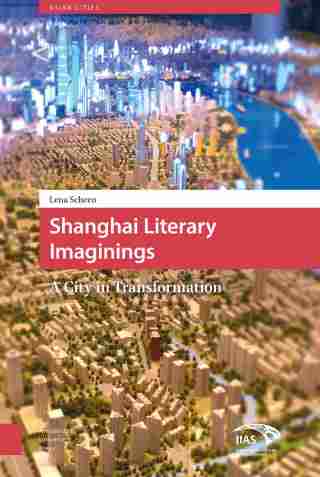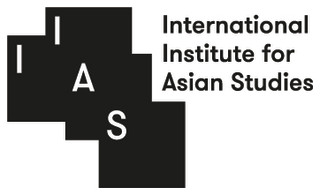
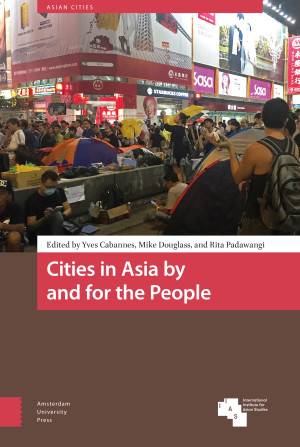
- Title
- Cities in Asia by and for the People
- ISBN
- 9789048536252
- Format
- eBook PDF
- Number of pages
- 348
- Language
- English
- Publication date
- 10 - 09 - 2018
- Dimensions
- 15.6 x 23.4 cm
- Open Access
- Download on Open Access Platform
- Series
- Asian Cities
- Partner

- Category
- Interdisciplinary Studies
- Discipline
- Asian Studies
- Also available as
- Hardback - € 141,00
Cities by and for the People
Table of Contents
Chapter 1
Cities by and for the People
Yves Cabannes, Mike Douglass, Rita Padawangi
Chapter 2
How to Prove You are Not a Squatter: Appropriating Space and Marking Presence in Jakarta
Jörgen Hellman
Chapter 3
Inhabitants of Spontaneous Settlements in Bangkok: Networks and Actions Changing the Contemporary Metropolis
Fanny Gerbeaud
Chapter 4
Collaborating Urban Farming Networks in Bangkok: To Promote Collective Gardens and Alternative Markets as Theatres of Social Action
Piyapong Boossabong
Chapter 5
The Struggle to Create Alternative Urban Spaces: An Attempt by a Theatre Group in Hong Kong
Ngai Ming Yip
Chapter 6
Making the Music Scene in the Making of Singapore: Jumping Spatio-Sonic Scales in a Southeast Asian City-State
Steve Ferzacca
Chapter 7
Connect with Society and People through "Art Projects" in an Era of Personalization
Motohiro Koizumi
Chapter 8
Challenging Form Follows Capital: The Resilience of Urban Fresh Food Provisioning in Baguio City, Philippines
B. Lynne Milgram
Chapter 9
From Street Hawkers to Public Markets: Modernity and Sanitization Made in Hong Kong
Maurizio Marinelli
Chapter 10
Street Vending from the Right to the City Approach: The Appropriation of the Bhadra Plaza
Lila Oriard Colin
Chapter 11
Surviving Existence through a Built Form: The Advent of the Daseng Sario
Cynthia R. Susilo and Bruno De Meulder
Chapter 12
Ethnic Place-Making in Cosmopolis: The Case of Yeonbeon Village in Seoul
Myung-Rae Cho
Cities in Asia by and for the People
This book examines the active role of urban citizens in constructing alternative urban spaces as tangible resistance towards capitalist production of urban spaces that continue to encroach various neighborhoods, lanes, commons, public land and other spaces of community life and livelihoods. The collection of narratives presented here brings together research from ten different Asian cities and re-theorises the city from the perspective of ordinary people facing moments of crisis, contestations, and cooperative quests to create alternative spaces to those being produced under prevailing urban processes. The chapters accent the exercise of human agency through daily practices in the production of urban space and the intention is not one of creating a romantic or utopian vision of what a city "by and for the people" ought to be. Rather, it is to place people in the centre as mediators of city-making with discontents about current conditions and desires for a better life.
Editors
Yves Cabannes
Yves Cabannes is an Urban Planner and activist, Emeritus Professor of Development Planning and former Chair (2006-2015) of the Bartlett Development Planning Unit (DPU), University College London, UK. He holds a Ph.D. in Development Planning from Paris Sorbonne University.
Mike Douglass
Mike Douglass is Emeritus Professor of Urban Planning, University of Hawaii. At the National University of Singapore (2012-2018), he was a Professor at the Asia Research Institute. His research includes globalization and the city, progressive cities, creative communities, and environmental disasters.
Rita Padawangi
Rita Padawangi is Associate Professor (Sociology) at Singapore University of Social Sciences. Her research is on social movements, community engagement, and environmental justice. Rita coordinates the Southeast Asia Neighbourhoods Network (SEANNET), a collaborative urban research and education initiative. She recently published Urban Development in Southeast Asia (Cambridge University Press, 2022).

